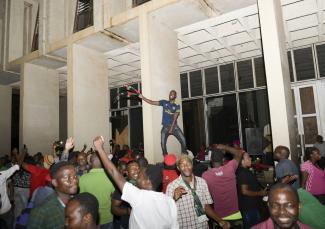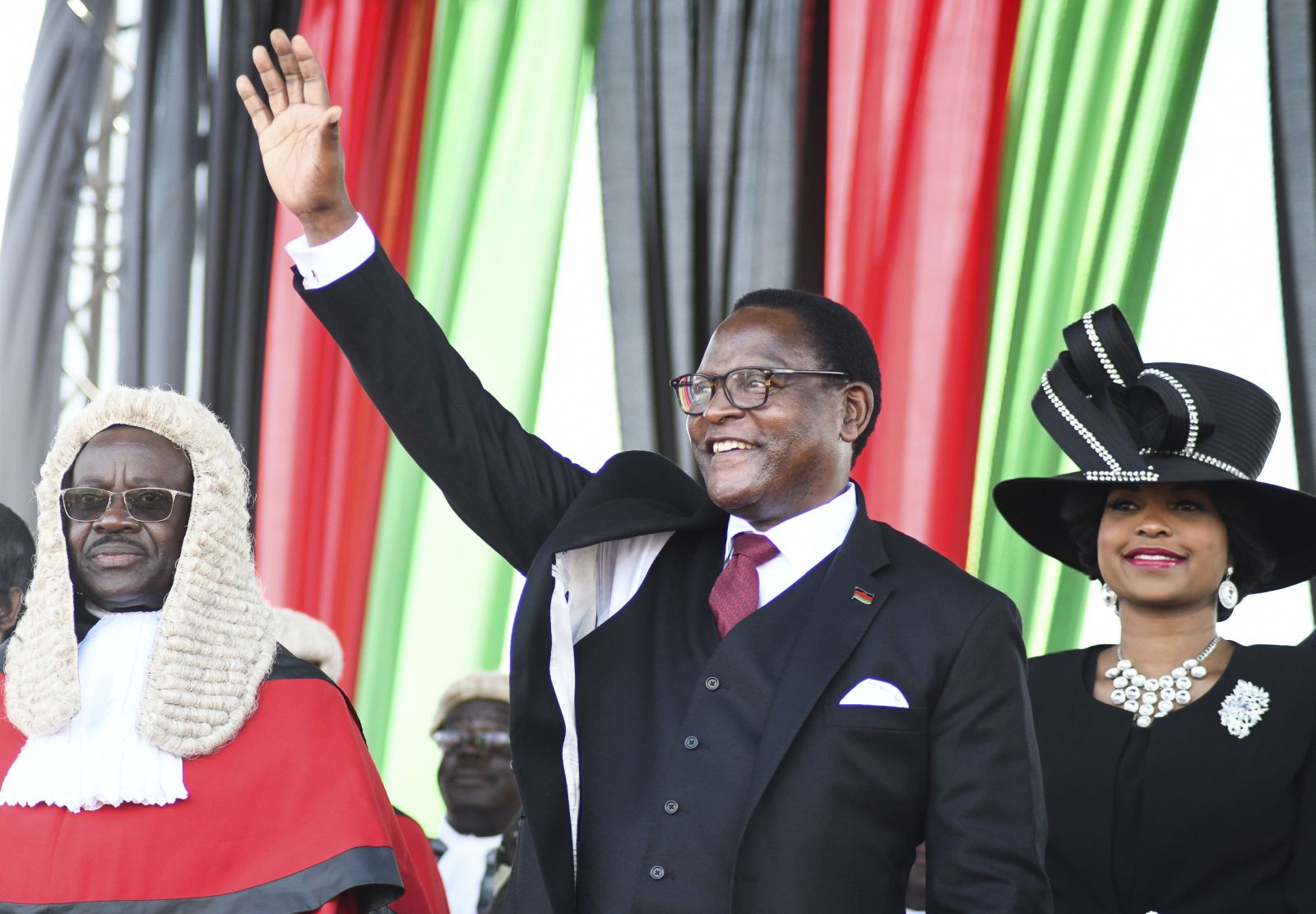Election fraud
Newfound faith in legal system

The court in Lilongwe, Malawi’s capital, determined that the results of the May 2019 election were manipulated and that Mutharika is therefore not the legally elected president. Healey Potani, one of the five Constitutional Court judges, said that the elections had to be annulled accordingly. A new election must now be held within 150 days from the day of the ruling.
According to the officially published results, Mutharika had prevailed with 38.6 % of the vote, just barely beating Lazarus Chakwera (35.4 %) of the opposition party MCP (Malawi Congress Party). Saulos Chilima of the UTM (United Transformation Movement) was said to have come in third with 20,2 %. The MCP and the UTM then turned to the Constitutional Court, accusing the Malawi Electoral Commission (MEC) of cheating. They pointed out, for example, that various results had been doctored by use of Tipp-Ex.
The Constitutional Court ruled that the election indeed lacked credibility, thus contradicting international election observers from the EU, the Southern African Development Community (SADC) and other institutions. The observers had spoken of free and fair elections. This is only the second time in African history that judges annulled presidential elections. In 2017, Kenya’s Supreme Court was the first ever to do so.
Corruption is quite common, and apparently there was an attempt to bribe the judges in the current case, with a high-ranking banker trying to intervene in favour of Mutharika. The banker was recently released on bail from detention.
Triumph of democracy
The majority of Malawians celebrate the victory of democracy and justice, but Mutharika supporters consider the judgment to be partisan. In their eyes, it thwarts the will of the people. Mutharika has personally criticised both the judges and the opposition parties. The MEC has done so too. Both parties have asked to the Constitutional Court to halt the implementation of the judgment and also appealed to the Supreme Court, demanding a reversal. The Constitutional Court has rejected the proposition, but the Supreme Court must yet decide. Legal scholars do not expect it to reverse the decision of the Constitutional Court.
Supporters of the opposition have been demanding the resignation of Jane Ansah, the head of the MEC, since May. Their pressure increased after the annulment judgment. They insist that she must not organise the next election. In mid-February, some 6,000 protesters rallied in front of the MEC offices in Blantyre and Lilongwe, locking the doors with chains. When this edition of D+C/E+Z was being finalised, Ansah was still clinging to office and said she would only resign if the Supreme Court confirmed the judgment passed by the Constitutional Court.
There have been recurring opposition rallies throughout the country ever since the controversial election in May. People neither trust the MEC, nor the government-run media, nor the police, nor the judiciary. While the court case was going on, the Armed Forces assumed responsibility for monitoring protest rallies.
The judgment has considerably boosted people’s faith in the judges however. Mustafa Hussein, who teaches political science at the University of Malawi’s Chancellor College, says that many people did not expect it and that it has changed the political dynamics. He believes it will have an impact on how elections must be managed in the future.
An interesting side aspect, according to Hussein, is that the Supreme Court not only dissolved the cabinet, but also reinstated Chilima as vice president. That is the office he previously held in the past legislative term, before running against Mutharika in the May elections. Since then, the two are not on talking terms, and it is expected that Chilima’s role will be only ceremonial with no responsibilities whatsoever.
Raphael Mweninguwe is a journalist who lives in Malawi.
raphael.mweninguwe@hotmail.com











